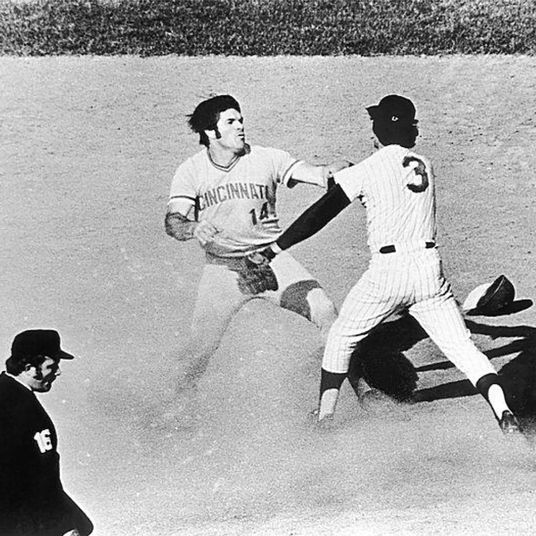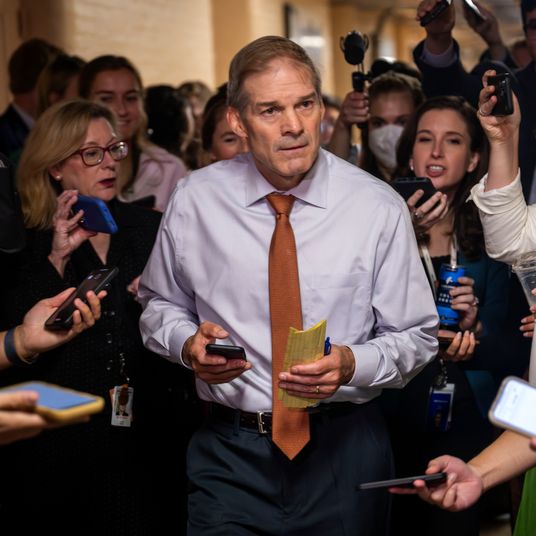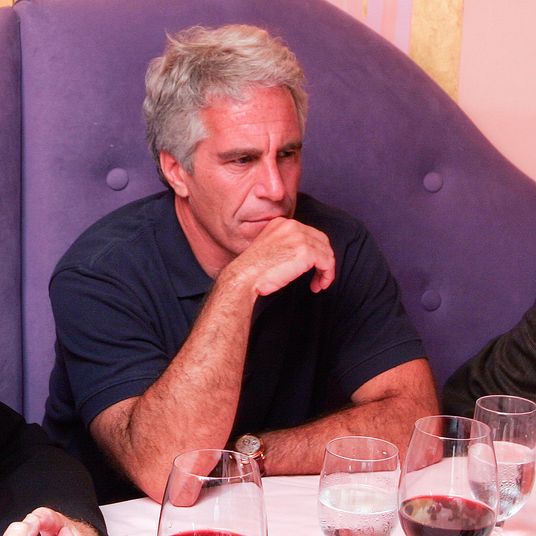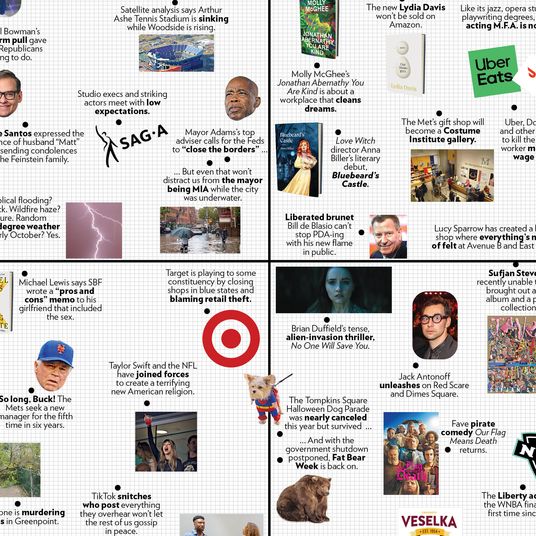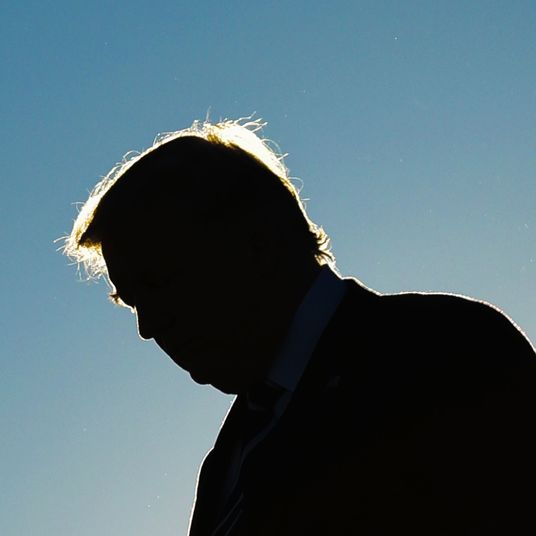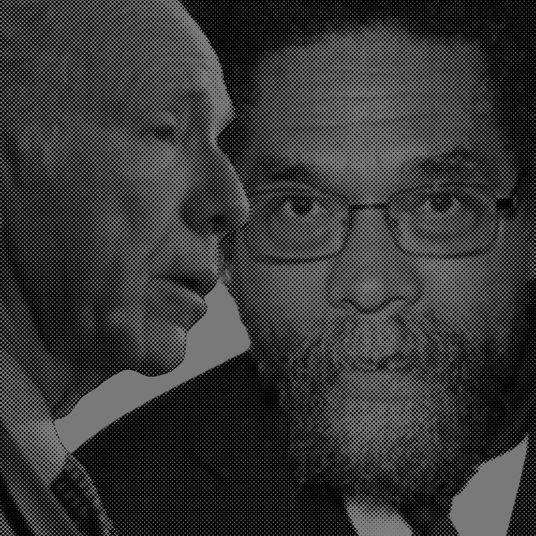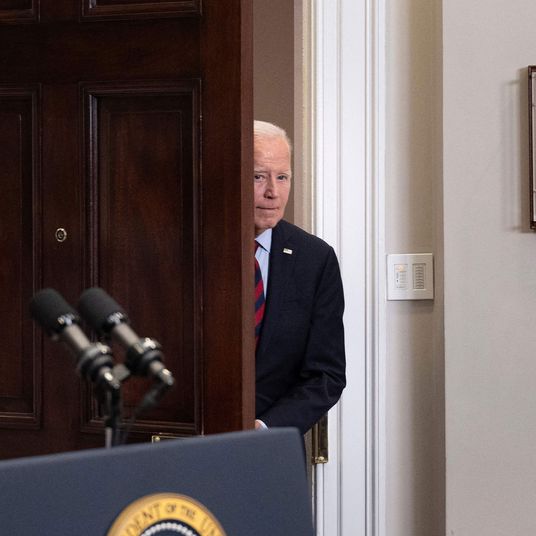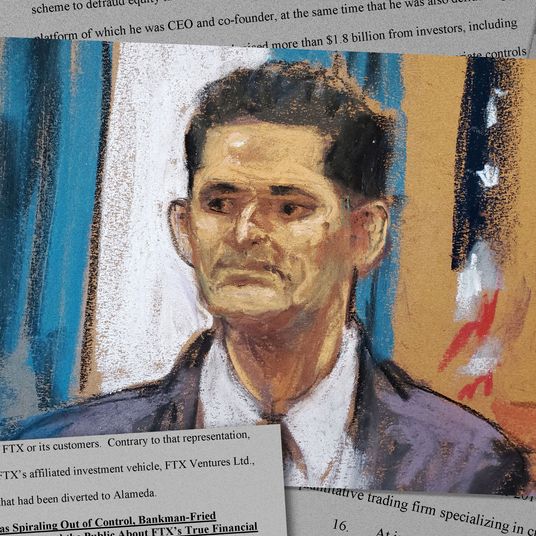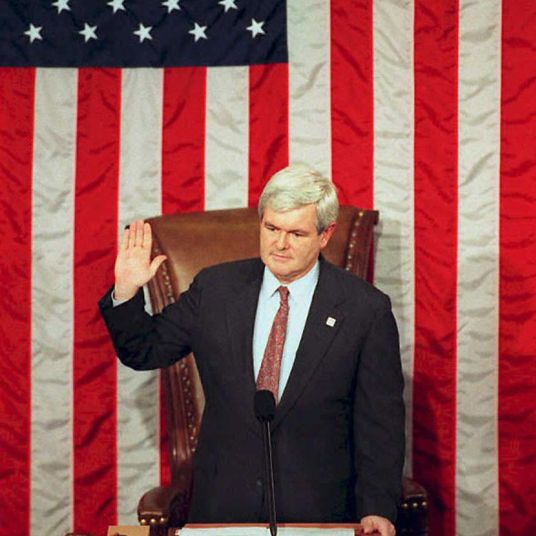My favorite social-media controversy of recent vintage was a September 15 post on X (the rebranded Twitter) by the esteemed Japanese novelist Haruki Murakami that read, “As a writer, you can write as much as you want until forty or so, while youth is on your side. But after that, it’s common for people to lose energy, and their writing suffers as a result. Generally speaking.” Many of those on the wrong side of that magic number took grave offense. “Almost every hour of TV I gave to HBO came between 40 and 60, so nah, I’ll be pumping good pages when I’m gumming food and falling down stairs,” huffed The Wire’s David Simon. When people weren’t cataloguing the achievements Toni Morrison, John le Carré, and other luminaries had notched in their middle to later years, they were calling Murakami sexist, classist, and ageist for failing to recognize that not everyone has the ability to take such advantage of their youth.
The problem was that Murakami had said no such thing — or not really. The account under his name is a bot that spews Murakami content (photos of his work desk, koanlike reflections, cat memes), and in this case, it had mangled some benign remark he had made to Uniqlo’s LifeWear magazine about taking up running to maintain his energy in his old age. The dark cloud of fury and indignation that swirled around this stray comment, the hundreds of accusations that this 74-year-old man did not know what it was like to be a woman or a poor person or, uh, an elderly artist, and the presumption that anyone should care what Haruki Murakami thinks about this subject in the first place — all seemed indicative of where the conversation around identity politics has ultimately landed, so much heat and light surrounding an empty core.
It’s wonderful to imagine Murakami being completely oblivious to this storm raging in the online Anglosphere as he putters around his sumptuous house outside Tokyo and writes his umpteenth novel about listening to jazz and eating spaghetti. But if this incident was evidence that senseless mobbings still occur with disheartening regularity, there was also proof that very same day that we have, in the aggregate, grown more adept at sifting through who is worthy of cancellation, who is merely distasteful, and who should be left to their writerly devices. After many years in action, maybe cancel culture is finally growing up.
While hordes of Twitter users were trying to shame Murakami, The New Yorker reported that Hasan Minhaj, the former host of the Netflix current-affairs show Patriot Act and a leading candidate to succeed Trevor Noah as the anchor of The Daily Show, had fabricated stories about being a target of discrimination. That morning, the New York Times published an interview with Rolling Stone founder Jann Wenner in which he divulged that he had not included any interviews with Black or women musicians in his new book, The Masters, because “none of them were as articulate enough on this intellectual level.”
That all these scandals broke on the same day was a crazy coincidence. Here was every flavor you could imagine: a nontroversy ginned up by credulous commentators with itchy trigger fingers and a desperate need to feel oppressed; an exposé of a prominent brown Muslim entertainer who appears to have exaggerated the prejudice he has experienced in order to gain clout; a howlingly offensive admission by a famous media gatekeeper that he thought only white men were capable of capturing the intellectual significance of rock and roll. (As many a wag noted, these towering giants of the mind included Bono.) Partisans of every persuasion could feel satisfied that they were right: that the great debates surrounding identity were either much ado about nothing, a cynical scheme hatched by marginalized groups to seize control of the institutions of culture, or a necessary corrective to the dominance of the white patriarchy.
This might suggest a kind of stalemate or an exhausting recycling of themes that will churn on forever without a satisfactory conclusion. But judging by the response to these incidents, there seems to be broad agreement about the ways that each should be handled, even between those who have different, sometimes opposing understandings of who the real victims and perpetrators of cancel culture are.
Let’s start with Wenner, whose interview with the Times contains one jaw-dropping line after another about Marvin Gaye and Joni Mitchell being incapable of expressing themselves as intelligently as Bruce Springsteen or Mick Jagger. All cant and pretense and retroactive gestures at diversity were stripped away, leaving behind the bare truth: that a powerful white male editor doesn’t believe women and Black musicians are as smart as white male ones. Wenner’s admission was the music world’s version of the viral video of an Australian CEO telling an audience that workers have become “arrogant” and that the unemployment rate needs to jump by 40 to 50 percent to put them in their place — proof that, behind their masks of respectability, they really believe what their most conspiratorial enemies accuse them of believing!
Wenner’s cancellation was immediate and uncontested. He was booted from the board of the Rock & Roll Hall of Fame, which he had helped found. He was denounced by his own son Gus, who is the CEO of Rolling Stone: “I want to be clear, his statements as reported do not represent my beliefs, or the values, practices, and mission of Rolling Stone.” True, the magazine is still being run by a Wenner, which is kind of how patriarchy works. But the father’s downfall suggests that a consensus has formed on the fraught issue of cancellation, that it is perfectly acceptable for some dinosaurs to be laid to rest in Montauk and never heard from again.
Now Minhaj. The New Yorker reported that he had claimed in one of his comedy specials that an FBI informant had tried to infiltrate his family’s mosque in California in order to entrap him on trumped-up charges of terrorism. He also claimed that, in the aftermath of a controversial Patriot Act segment, someone had mailed a mysterious white powder to his home that spilled on his daughter, forcing him to rush her to the hospital. None of this happened. The article rather generously frames the issue as being whether comedians like Minhaj are allowed to bend the facts to convey an “emotional truth,” but to my mind it’s a clear case of manipulation — what the writer Jay Caspian Kang called “fabricated oppression porn.” If I were in the audience of Minhaj’s show, I would have assumed he was telling the actual truth, not an emotional one.
Do these revelations make me think America is a less racist and less Islamophobic place? Not really. But besides some diehards — and … Whoopi Goldberg? — few people are going to defend a person inflating their racial plight, especially since Minhaj is not some average yokel struggling to get by but a celebrity literally auditioning to be the host of The Daily Show. Should the revelations disqualify him from the job? If it were up to me, I wouldn’t give it to him, but perhaps the better question is, Does it matter? One of the hallmarks of the early woke era was a clarion call for greater minority representation in television and movies, which remains important in a country where the governing paradigms of reality are often established by mass entertainment. But there has also been growing acknowledgment that racial equality is not going to be won in Hollywood studios alone, which makes the fate of Minhaj feel less significant than it might have in the past. The flip side of cancel culture has always been an instinct to protect, a reluctance to go after those from marginalized groups in particular, and Minhaj is finding that he doesn’t have that protection.
Instead of using the flimsy shield of “emotional truth,” Minhaj might want to consider simply apologizing to the fans he led on. Surely this is a path that remains open to him, even if it is closed for Wenner, whose own panicked apology fell on deaf ears. The true test of the maturity of cancel culture — an imperfect, chaotic mechanism that goes after the Wenners and the Murakamis alike — may lie in its ability to both condemn and redeem.

